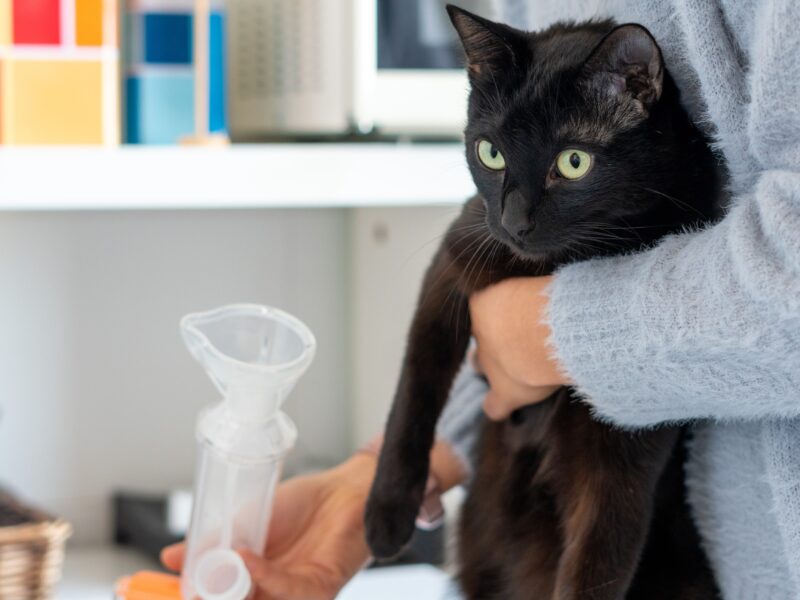U.S. Officials Discuss Pandemic Policy Visions At Scowcroft Pandemic Forum
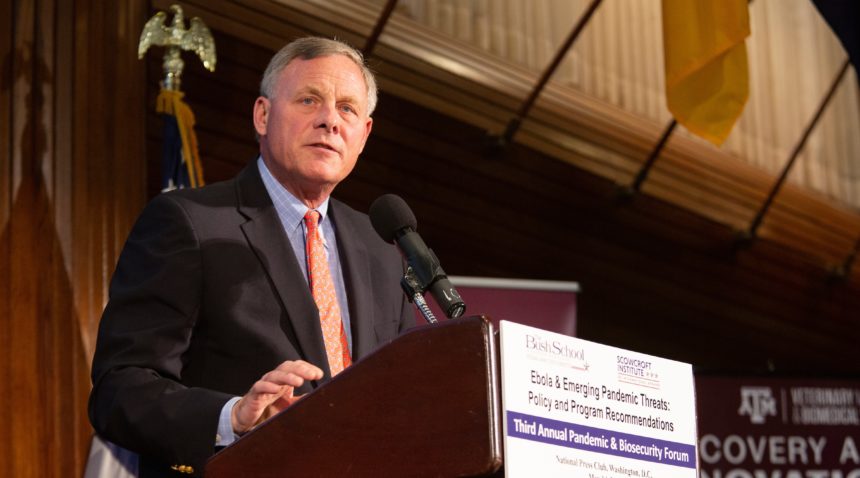
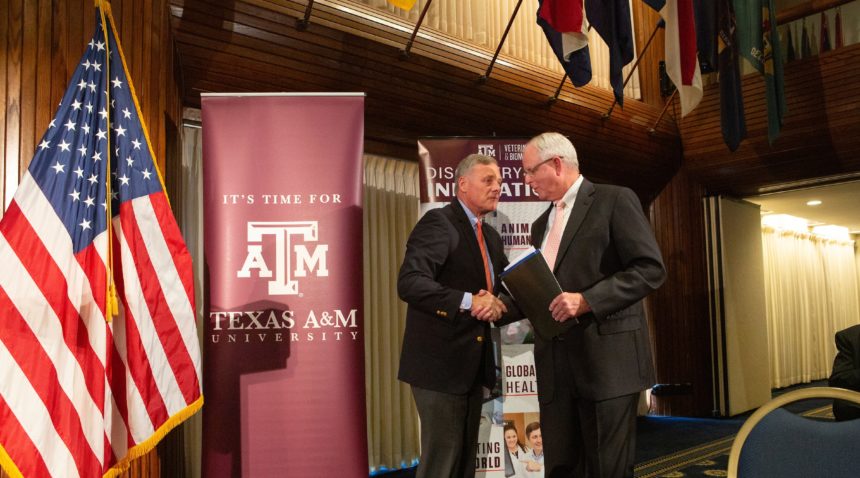
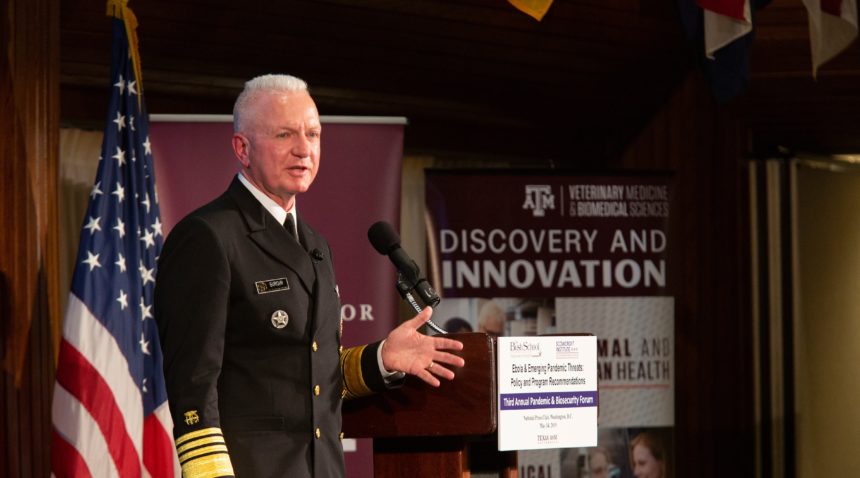
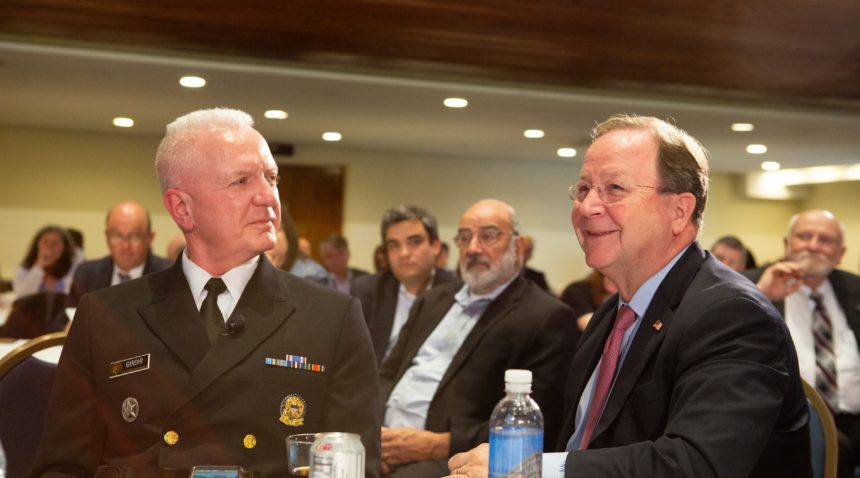
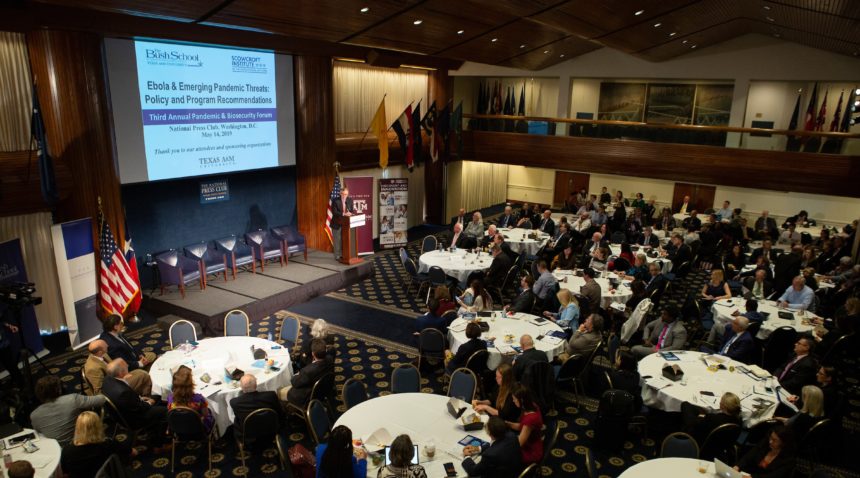
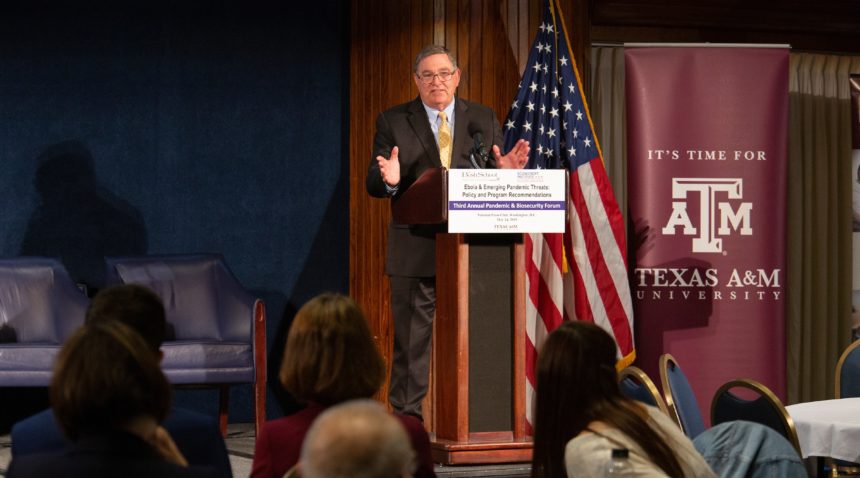
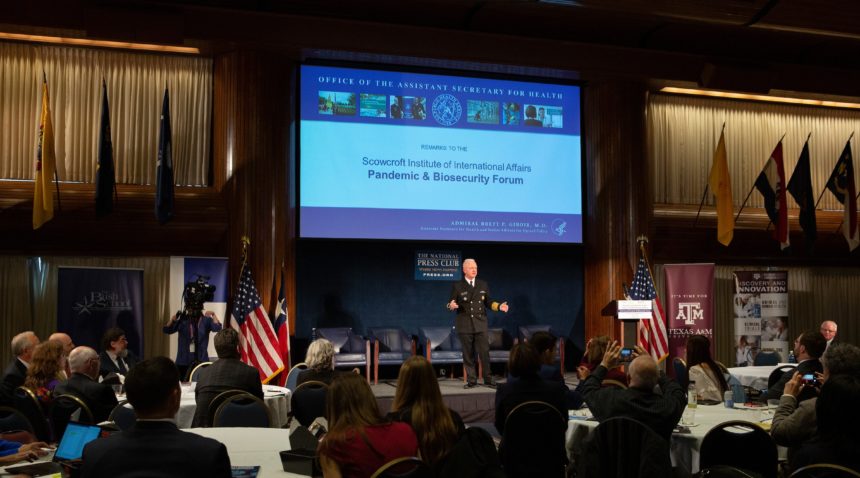
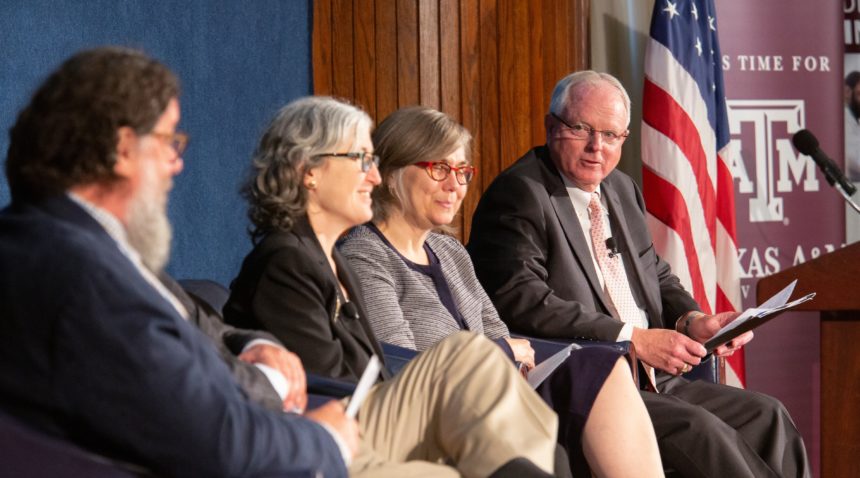
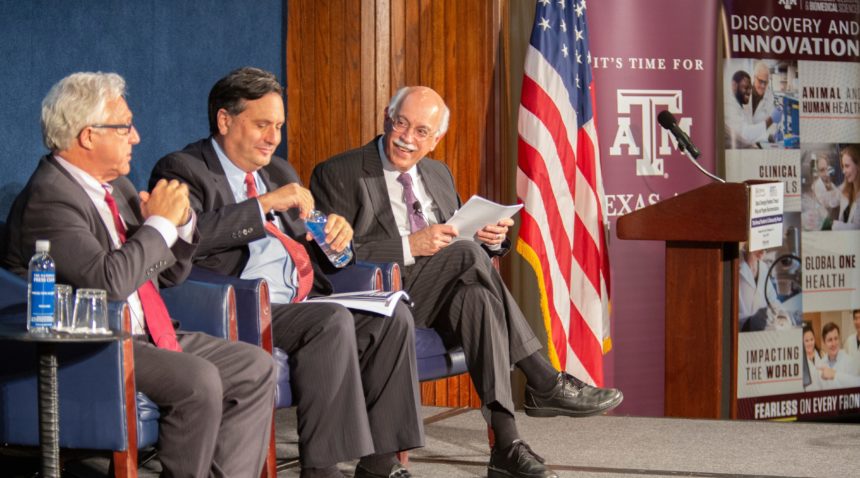
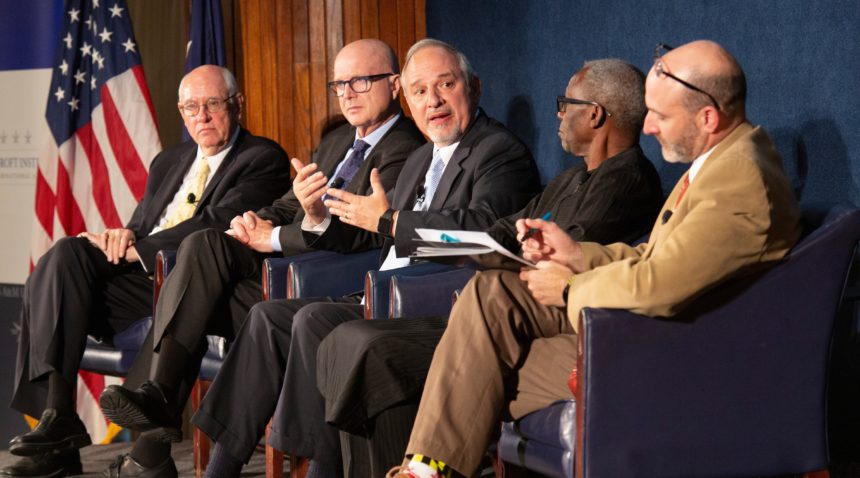
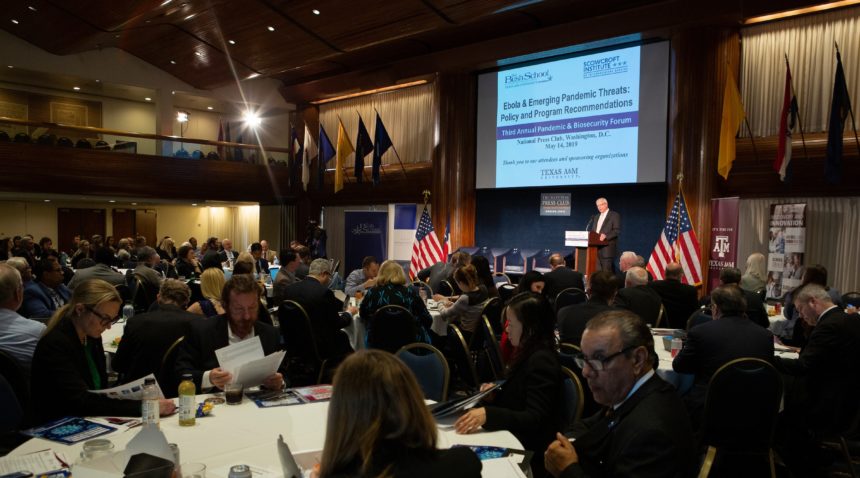
With the 100th anniversary of the 1918 flu pandemic that killed 50 million people worldwide as the backdrop, more than a dozen U.S. government officials and infectious disease experts gathered in Washington, D.C. for the Scowcroft Institute of International Affairs’ 3rd Annual Pandemic & Biosecurity Forum, where they discussed how to prevent future mass-casualty disease outbreaks.
The Scowcroft Institute, housed within the George H.W Bush School of Government & Public Service at Texas A&M University, also shared a white paper developed through research in 2018 by Bush School researchers and a team of eight interdisciplinary graduate students to more than 300 attendees at the National Press Club.
Featured speakers who received the report included U.S. Sen. Richard Burr (R-NC), Department of Health and Human Services Assistant Secretary for Health Admiral Brett P. Giroir, U.S. Rep. Michael C. Burgess (TX-26) and U.S. Rep. Bill Flores (TX-17).
Giroir, who served as executive vice president and CEO of Texas A&M’s Health Science Center from 2013-2015, hailed the report titled “Community Resilience, Centralized Leadership & Multi-Sectoral Collaboration In Pandemic Preparedness & Response” as a pivotal and urgent document.
“I think it is absolutely a critical, seminal piece of work that will serve as a guidepost both nationally and internationally,” Giroir said during the event.
Facilitating innovation
Burr, who serves as chairman of the Senate Select Intelligence Committee, said during his keynote remarks that the U.S. government often fails to develop and deliver technological innovations in a timely manner. He noted
“A system that restrains the deployment of technology on one side and incentivizes the innovation of technology on the other has to come together to figure out how to make these two mesh,” Burr said.
He pointed to the success of public-private partnerships like BARDA and open source software company Red Hat to encourage further collaboration between the National Institutes of Health (NIH), university researchers and private companies.
“This is the model I think we will try to replicate, whether it’s at Texas A&M, whether it’s in Massachusetts somewhere, whether it’s in Silicon Valley, because we now understand that without all three partners at the table in the same room with the same charge, we may come up short,” Burr said. “Don’t be scared to put government, academia and the private sector in the same room with a common challenge working on the same solution.”
He also warned that if the U.S. fails to become more agile and flexible when it comes to vaccine development, than the country could be “100 percent reliant on what someone else develops and tells us is a solution. I’m not sure I want to trust the Russian Ebola vaccine.”
Pandemic response at the community level
Burgess, who is a ranking member on the House Energy and Commerce Subcommittee on Health, invoked an iconic saying from former House Speaker Tip O’Neill by saying all politics is local, “and you know what, public health is local also, and executed on the ground by our hospitals, by our health departments and by our emergency responders who are in fact the front lines in addressing infectious diseases, disasters and threats.”
Burgess’s remarks were tied to the Scowcroft Institute white paper’s fourth recommendation, which calls the government to “financially and technically capacitate diverse community actors to carry-out their detection and response goals when emergency strikes.”
The second half of the day-long forum featured a series of three panel discussions featuring researchers and public and private sector infectious disease experts, who drilled down into the importance of pandemic preparedness at the community level.
Steve Davis, president and CEO of Seattle-based health nonprofit Program for Appropriate Technology in Health (PATH), underscored the importance of not just funding “magic bullet” projects during his panel discussion on the Ebola outbreak in the Democratic Republic of the Congo.
“Complexity needs sustained funding,” Davis said. “I’d move to follow up these big global policy commitments to make sure there’s ongoing funding so we’re not lurching from one magic bullet funding this year to nothing the next year.”
‘At a delicate period’
Panelists who took part in the global health security leadership discussion emphasized that building trust between doctors and patients in communities could help combat online misinformation that is fueling the spread of measles in the U.S.
Former CDC Principal Deputy Director Anne Schuchat said there needs to be a restoration of trust between families and physicians.
“I think it’s really important for people know that here in the united states, most parents make sure their kids get vaccinated against all the things that are recommended,” she said. “We’re not in crisis mode everywhere across the country with everybody opting out of the system, but I think we’re at a really delicate period in terms of trust, which I think is really local.”
During the final panel of the afternoon, Ron Klain, who served as the White House Ebola Response Coordinator from 2014 to 2015 and as Chief of Staff to Vice Presidents Al Gore and Joe Biden, urged attendees to not take the current pandemic response infrastructure for granted and to keep striving for improvements.
He recalled the 2009-2010 H1N1 flu pandemic, which recorded an estimated 60 million cases and 12,000 deaths, as an example.
“It’s purely a fortuity that this wasn’t one of the great mass casualty events in American history,” Klain said. “It had nothing to do with us doing anything right, it just had to do with luck. If anyone thinks this can’t happen again they don’t have to go back to 1918, they just have to go back to 2009-2010.”
Gerald Parker, Texas A&M associate dean of Global One Health and Former HHS Principal Deputy Assistant Secretary for Preparedness & Response, encouraged attendees to turn ideas into action during his closing remarks.
“We have learned a lot, but unfortunately some of these issues are not new issues,” he said. “We have simply got to find a way to turn some of these longstanding lessons observed into lessons learned. Our nation and international community deserves it.”
Media contact: Sam Peshek, 979-845-4680, sam.peshek @tamu.edu.


